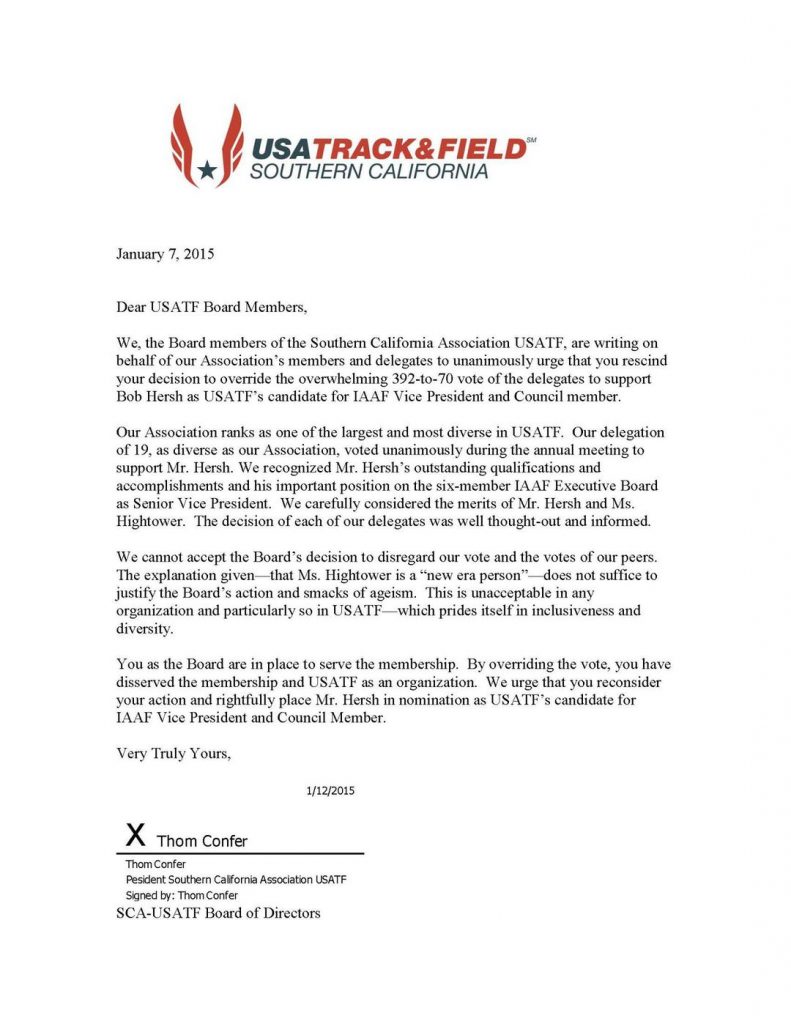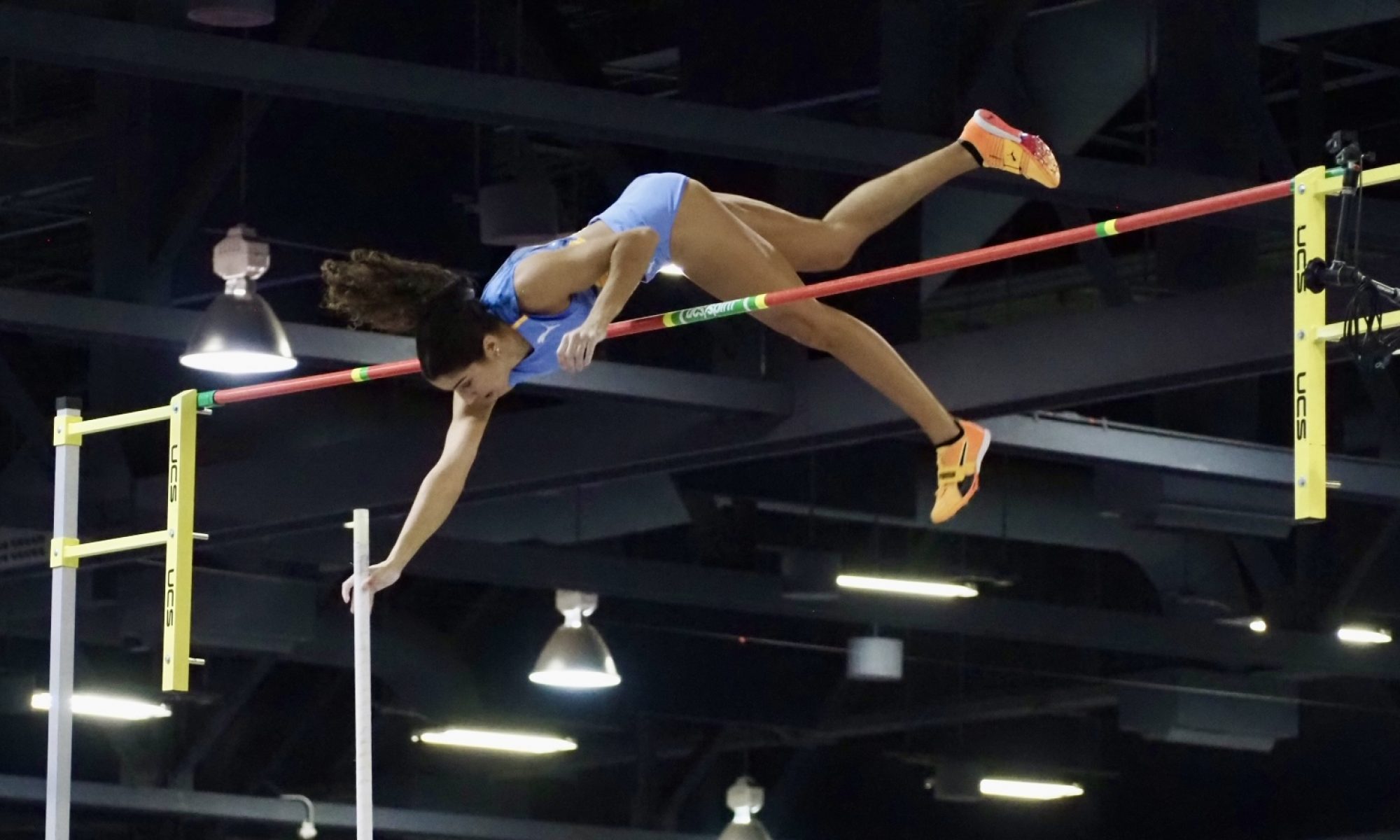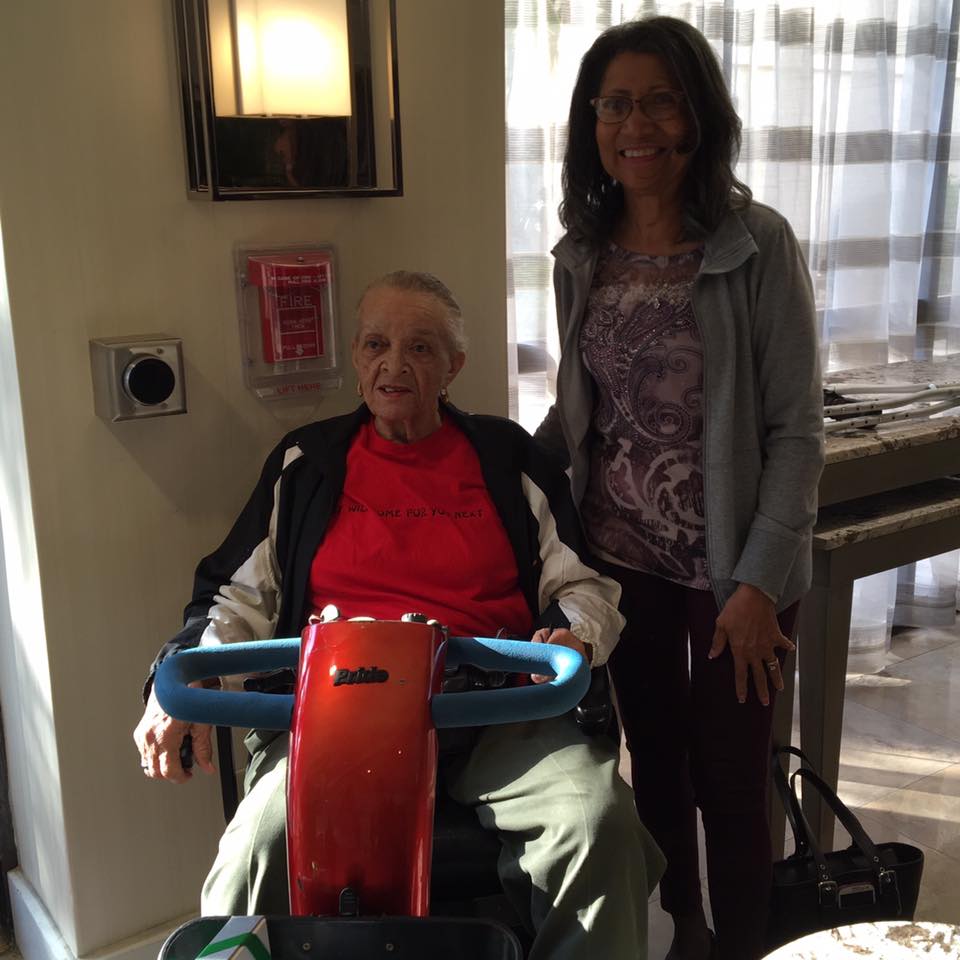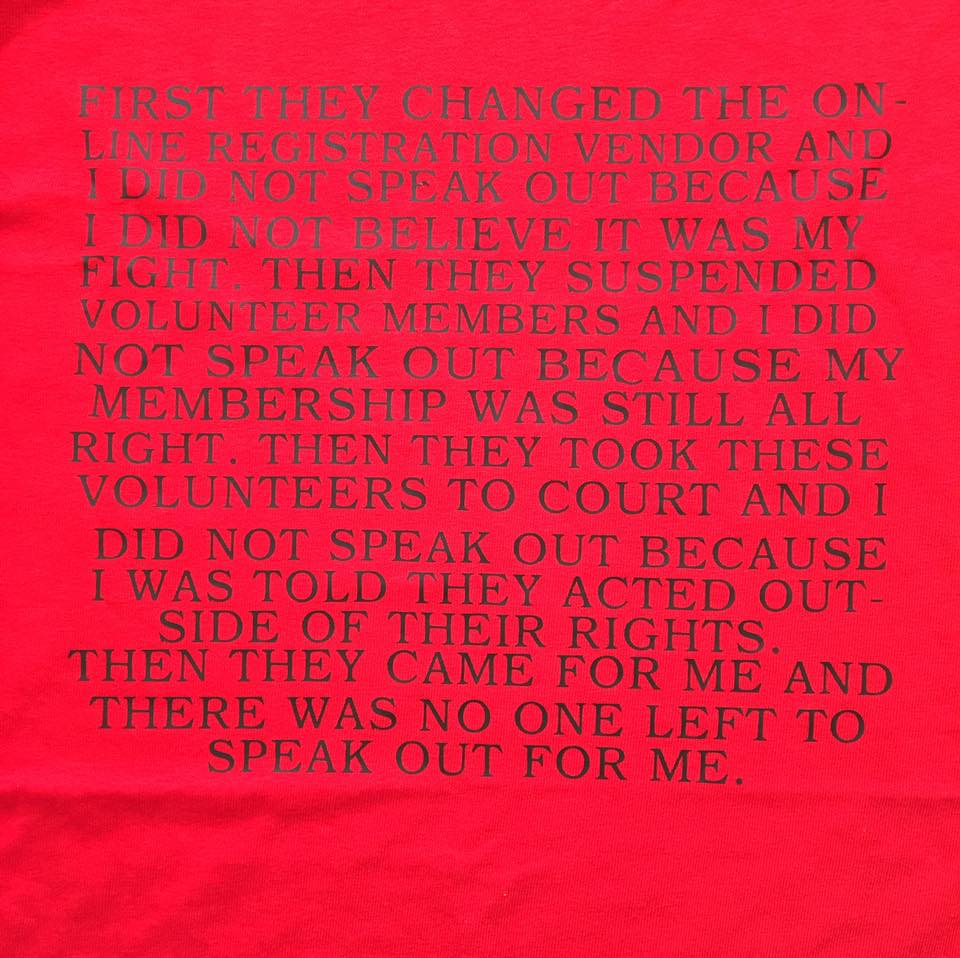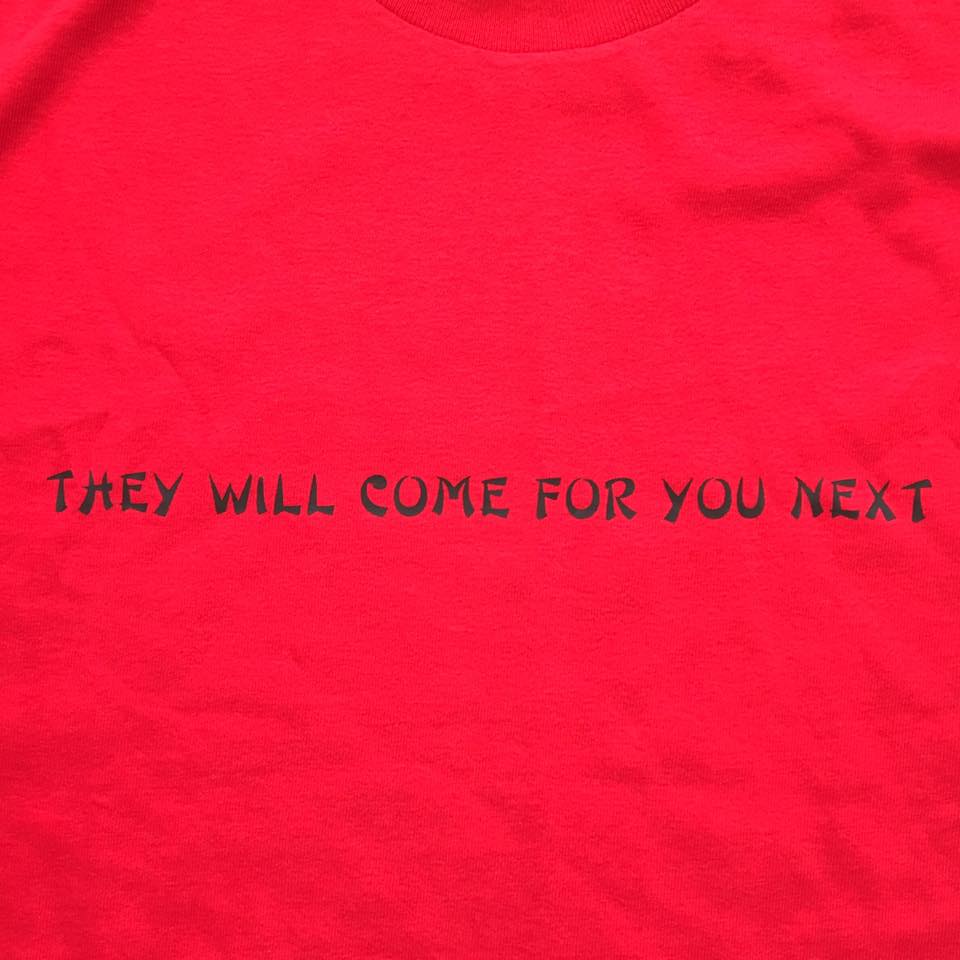Dorothy Dawson (85 years old) and Inez Finch, two of the 13 volunteers being sued by USATF.
JJK Withdraws, Vin USATF President
Jackie Joyner-Kersee has withdrawn from the USATF Presidential race.
Vin Lananna has been elected by acclamation as the new President of USA Track & Field!
Questions and Answers with USATF Presidential Candidates Jackie Joyner- Kersee and Vin Lananna
In a short time, the delegates of USA Track & Field will meet in Orlando to vote for their choice to be the next President of USATF. This year’s race features Jackie Joyner- Kersee vs Vin Lananna, both high profile figures within our sport.
Below are a series of questions selected by Becca Peter from PoleVaultPower.com, each candidate was gracious enough to take the time to provide thoughtful answers.
Hopefully their responses will provide an opportunity for the delegates to get to know each candidate better and learn about their views on a variety of issues that are currently impacting our sport.
1. When did you first consider running for USATF President?
Jackie Joyner-Kersee: Although I’ve thought about it over the past several years, I seriously began considering it in early spring 2016.
Vin Lananna: I’ve been fortunate to lead organizing committees for two international championships, three Olympic Trials and six USA national championships, so I know firsthand what can be accomplished when the volunteer membership of USA Track & Field and the National Office work together. During the process of bringing the 2021 World Championships to the United States, it became clear to me that in order to take our sport to the next level, we must maximize both aspects of USATF. By working together with common purpose and capitalizing on the tremendous opportunities that the World Championships will bring, we can strengthen all facets of the Federation. Because of my experiences in both the grassroots of the sport and the business of athletics, I felt compelled to help bring about a shared vision, and, as a result, a more united and stronger USATF. I want to be a voice for stronger Associations, increased money and opportunities for elite athletes, additional support for our youth and officials, and more resources directed towards all aspects of the membership.
2. What involvement have you had with your local Association in the past?
Jackie Joyner-Kersee: I have worked with the local organization (East St. Louis Railers) for over 30 years. I serve as a mentor to young athletes as well as a volunteer coach from time to time. It is important to me that I am visible and involved at the grass root level.
Vin Lananna: In a professional career spanning more than 40 years, I have been a part of numerous USATF Associations across the country. We have worked together to bring national and international events to our region. Once those event bids have been won, we’ve collaborated to ensure that opportunities and resources for the Association’s membership are integrated into the event, including volunteer roles, races for youth and masters, and officials’ selection and education. I’m particularly proud of the recent partnership with USATF Oregon for Portland’s House of Track this past winter. Through great dialogue, committed leadership by the Association, and tireless volunteerism from its officials, we were able to offer five weeks of programming for youth, masters, elite and race walking athletes. I’m convinced that with communication and coordination more such partnerships are possible around the country.
3. A lot of the volunteers who attend the Annual Meeting as delegates find the costs of attending to be a great financial burden. What would you propose that might ease this situation?
Jackie Joyner-Kersee: This is one of those complicated answers. First, the annual meeting selection process is directed by USATF Volunteers. Hence, there is a site selection committee composed of USATF volunteers who review the bids along with USATF staff and make a recommendation to the Board for approval. Since I have been on the USATF Board of Directors, I have heard about these concerns and like my board colleagues, believe that the process should be delegated fully to the staff who can negotiate the best possible deals based upon our constituency base. We currently afford funds to assist association, but I realized this may not be enough to support all our volunteers. However, I would like to investigate the possibility of defraying and/ or supplementing the cost to make it more affordable for everyone.
Vin Lananna: Fostering communication and collaboration lies at the heart of the Annual Meeting, but I believe that we can do more to develop better communication throughout the year to engage all of our members, perhaps through video conference technology. If elected President, I will be a strong voice for the needs of our Associations, including an increase in resources.
4. Over the past year, the USATF National Office sued 13 of its volunteers in a case that is still ongoing. Delegates have expressed concern over both their risk of being sued, and the financial cost this litigation has to USATF. If you were elected President, how would you address these concerns?
Jackie Joyner-Kersee: Because I am a member of the Board, I can’t discuss a pending legal matter. Please understand that this is a complex issue with many parts and pieces. I agree that we should be spending our funds on programming that directly impact all our athletes and our other constituents. It, therefore, is important that everyone follow the rules so that we can avoid these kinds of unfortunate situations.
Vin Lananna: I do not have the information that the Board of Directors and National office has that led to these lawsuits, so I certainly cannot comment in specific terms. But if elected, I can promise to use the voice of the Presidency to make all reasonable efforts to bring the involved parties to the same table in short order for what I would hope to be frank and sincere discussion. I would support any revisiting of our policies and by-laws that would give both our volunteer membership and National Office staff confidence in their ability to serve the sport without fear of becoming party to a legal proceeding unless as a last resort.
5. Whistleblowers played a key role in uncovering corruption at the international levels of our sport. Do you feel like USATF’s Whistleblower Policy is adequate to protect whistleblowers who have concerns at the Association or National levels of our sport?
Jackie Joyner-Kersee: The USATF Whistleblower policy is sound and is adequate to protect our members. Illegal activity is serious and as a board member of this federation I recognize that fact.
Vin Lananna: All successful, professional enterprises operate with a high degree of open communication and transparency. All of our efforts for a better sport will amount to nothing if we are not governed by integrity every step of the way. If elected President, I would welcome a review of USATF’s Whistleblower Policy if that were the desire of the membership. In the end, it must be our goal to have our policies seen as the gold standard by which other Federations are measured.
6. Our Ethics Committee has no authority over the Board of Directors. Do you think USATF would be stronger if it had an independent Ethics Committee who could independently investigate complaints against Board Members?
Jackie Joyner-Kersee: The Ethics committee has the ability to look at actions of responsible parties and advise. But it is important to note that the board of directors are elected to their positions and are accountable to those members. USATF is as strong as it has ever been because the Board is committed to the membership and the betterment of the federation.
Vin Lananna: A strong code of ethics must govern everything we do in our sport and everyone who is associated with it. All of our leaders, including the President and the Board of Directors, should be held accountable to those standards. We must strive to bring transparency to everything that we do, and an Ethics Committee should be empowered to uphold those standards.
7. Our Officials are aging and have struggled to recruit and retain younger officials to replace them. As President, what strategies would you take to address this problem?
Jackie Joyner-Kersee: I would continue to support the efforts of our CEO in providing stipends to the officials for national championship events. In addition, our CEO has expressed interest in developing programs to encourage younger participation in the ranks of the officials, so I am interested working with the Officials Committee and the CEO on a plan to implement these kinds of programs. I also think it is important to encourage mentoring versus replacement – there is so much value in experience. I would like to encourage the opportunity to transfer that knowledge to a younger class of officials. Officials are some of the committed warriors in our sport, and we recognize the need to create that next generation pipeline.
Vin Lananna: In each of my stops as a coach or administrator, we have taken dedicated action to recruit, retain, and reward officials. While there is no magic solution to these challenges, I have found that by listening to our officials and prioritizing the improvement of their conditions, we can make significant progress. If elected President, I would take this same approach on a national scale.
8. Your involvement with the sport has been primarily at the “professional” level, but being President means also having to effectively manage age-groups, ultra running, race walking, etc. Are you prepared to take on this big job, top to bottom?
Jackie Joyner-Kersee: I have over 30 year of involvement in this sport. As the President, I will represent and serve the entire constituency base, from 30,000 feet level. The members of all the constituency groups are the subject matter experts and I would rely on their expertise to assist in guiding my leadership as President. Moreover, the President is not the CEO and does not have the responsibility of managing the day to day affairs of the federation. The most important point I would like to make is that I recognize the value of each discipline and the contribution of each discipline to the sport that we all love so dearly.
Vin Lananna: Although I certainly have expertise in the business of track and field, I would not say that the majority of my work within the sport has been at the professional level. I have organized hundreds of youth, masters, race walk, high school, road race, and collegiate events over the past 40 years. I have coached athletes through college and beyond, and led an entire collegiate athletic department. My experiences in the sport have touched its entire spectrum, from holding stop watches, raking pits and setting up hurdles to rallying volunteers, working with Associations and officials, all in addition to leading organizing committees for world-class events. This breadth of experience has taught me that the most successful organizations are those comprised of talented individuals working together toward a common goal. I am running for President because I believe I have the qualifications, experience and passion to represent all the constituencies of USATF.
9. You have lots of irons in the fire already and lead a very busy life. How difficult will it be for you to carve out the time required to do a proper job as the sport’s leader?
Jackie Joyner-Kersee: I have always curving out time for the sport that I love and am committed to growing both nationally and internationally. Because I am passionate this work will become second nature for me.
Vin Lananna: My 40 years in the sport have brought me to this time and this opportunity to work for a better USATF from coast to coast. Of course, previous USATF Presidents have had full-time jobs as well. However, with the day-to-day business of TrackTown USA managed by its CEO, Michael Reilly, I have the time, energy, and bandwidth to represent all of the constituencies within our sport as their President.
Jackie Only
1. The Jackie Joyner-Kersee Foundation had some publicized financial difficulties a few years ago under your leadership, what would you say to delegates who are concerned about this?
Jackie Joyner-Kersee: Those learning curves have passed and my Foundation and my work are on firm footing.
2. What are some of the lessons you have learned in your transition over the years from elite athlete to philanthropic leadership and public speaking?
Jackie Joyner-Kersee: I began transitioning before I retired. My philanthropic work began over 30 years ago, as well as, my foundation work and public speaking. It was important to me to start my life off the field before my competing days ended. Because of this, I’ve learned the importance of respecting the work as I respected my craft. I have chosen to be committed and involved in my philanthropic work and not just lend my name to it. That lesson has proved me well over the years.
3. What have you learned from your time as a USATF Board member that would help you if you were elected President?
Jackie Joyner-Kersee: I have learned the importance of listening, and working together to reach a common goal. Being on the Board of Directors has provided me with an opportunity to look through the lens of our sport differently. As I mentioned earlier, our role on the BOD is to govern the sport and to provide the fiduciary responsibility to ensure that the CEO is performing the job to position our sport, grow our brand and ensure that our athletes have competitive opportunities. As an athlete, I could not see all the complexities of running our sport, however as a philanthropist, coach, manager and business owner, I have been able to utilize and transfer these skills through my service on the BOD and I hope to now can utilize these same skills as President.
Vin Only
1. Last summer an article was published indicating that TrackTown USA was under financial strain, what would you say to delegates who are concerned about this?
Vin Lananna: I would invite everyone to read the full story at http://registerguard.com/ rg/news/local/34506210-75/tracktown-usa-crunched-for-cash-ahead-of-2016-u.s.- olympic-track–field-trials.csp. Although the story was given a misleading title, it did provide good information about a common situation for event organizers before all tickets and other commercial opportunities have actually been sold. TrackTown USA, Inc. is financially sound, and the 2016 Olympic Trials did break even with two record attendance days. TrackTown USA has been a model for creating public and private partnerships, which not only has enabled us to bring IAAF championship events to the U.S. for the first time, but also has enabled those championships to be transformed into spectacular events. I am exceptionally proud of how TrackTown USA is considered a strong example of a successful and well-funded non-profit organization.
2. What are some of the lessons you have learned in your transition over the years from coach to a role in sports leadership?
Vin Lananna: I believe that the lessons I have learned as a coach and from my mentors in the sport have influenced my entire professional career. In particular, I have discovered that more can be learned about what people really need by listening to them directly. All of the initiatives that I’ve helped lead have been successful by listening to those around me, identifying our needs, assembling talented teams and developing the resources necessary to achieve great results. If elected President, I will be accessible to the membership, I will listen to all the constituencies and I will be sure that the voice of the membership is heard at the Board level.
3. You have been a Team USA coach for Olympic and World Championship teams, what have you learned from these experiences that would help you if you were elected President?
Vin Lananna: I have had the privilege of leading several U.S. national teams, and the approach has always been the same – put the needs of the athletes first. These teams have been a model for collaboration between dedicated volunteers and National Office staff, working together as one unified organization. With the world’s #1 team, we must never stop aspiring for greatness or finding the resources necessary to support the athletes and the coaches and support staff that develop their talent.
Washington Post Article on Max Siegel
Since I get blamed every time stuff like this comes out, I’d like to state for the record that I was not interviewed for this article and I did not have anything to do with it!
It’s a very good article, you really should read it…
USATF Prize Money Timeline
One awesome thing to come out of today’s USATF Board of Directors Meeting is that Max is committed to paying athletes their prize money and such within 2 weeks of the event. If the money is coming from a third party, it will be within 2 weeks of USATF receiving the money.
In the past, cash flow was sometimes an issue, but USATF’s savings have grown, so they can more easily pay athletes promptly. Waiting for drug testing results is also one of the reasons for the delays, I think they are moving away from waiting for those results.
Maybe this was announced as part of the athletes’ meeting a few weeks ago, I just didn’t remember seeing it in the press releases, and I know some people were complaining about how long it usually takes to get money from USATF.
USATF Statement Regarding Nick Symmonds

USATF Pacific NW Requests Transparency
USATF Pacific Northwest has written to the USA Track & Field Board of Directors requesting a re-vote with more transparency in their vote for IAAF Council Nominee.
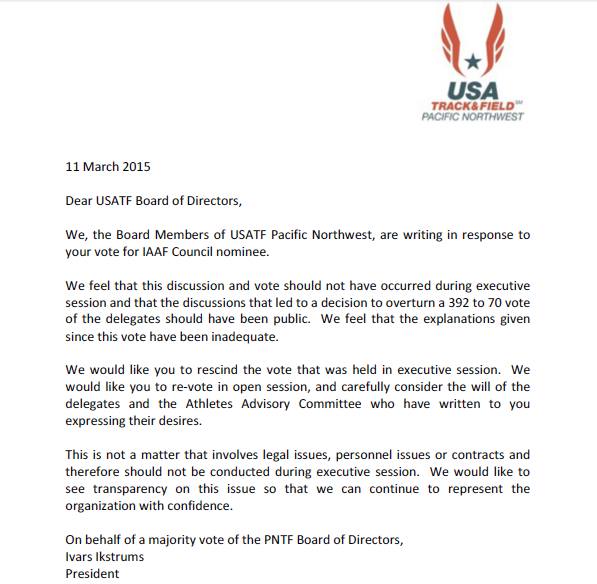
USATF Sends Club Cease and Desist
Are you kidding me?
USATF didn’t even give the 2014 Club Cross Country Meet its own press release.
The video USATF put out from the event did not feature any runners from this club.
But Sisu Project was sent a cease and desist letter for posting video of THEIR athletes at Club Cross.
Story Time About Bob Hersh
I have a true story to tell. I posted this on my Facebook, and am re-posting here because this isn’t just my story, this is also the story of why Nick Symmonds founded the “I’m Tired” Facebook group. This story affects every elite and hoping to someday be elite athlete in the United States.
In late 2010 and early 2011, the USATF National Office began placing restrictions on the logos athletes could wear at USATF National Championships. The restrictions were the same as for the Olympic Trials, which are basically the same as the IAAF restrictions, but they exempt colleges and longstanding clubs.
It began with the major National Championships but quickly spread to smaller meets. Athletes like Lauren Fleshman and Nick Symmonds began to speak out against this. I was told by several people on AAC that they had to do this because the IAAF said so. I know these people believed what they said was true. They were not making this stuff up, they were repeating what they heard from the National Office.
This issue struck home when the National Office changed the website for Club Cross to state that we would have to follow these rules as well. My Club and Association were hosting the meet that year. No one from the National Office bothered to tell the LOC about this, I found out about it via an athlete mentioning it on Facebook.
That just wasn’t going to work for us. The majority of USATF Clubs do not have IAAF-compliant jerseys because the majority of Clubs don’t have athletes competing in the Olympic Trials or Diamond League Meets. We had teams threatening to boycott the meet.
At the 2011 USATF Annual Meeting (one week before our event), these issues came to head at an AAC Meeting that Stephanie Hightower eventually kicked me out of, when she “closed” the meeting in violation of USATF and AAC policies.
But before she closed the meeting, our IAAF representative Bob Hersh made a startling statement: The IAAF was NOT telling USATF that they had to restrict logos at their domestic meets. In fact, the IAAF had just passed a new rule that eased the IAAF’s logo restrictions, allowing a second sponsor logo on the jersey for non-Championship IAAF meets (for example, Diamond League meets).
We spent a YEAR fighting this issue very publicly with the National Office. When did Stephanie ever fight for the rights of athletes? When did Stephanie ever try to find out the truth behind the matter? What I personally observed was Stephanie lose her shit when there was a miscommunication about filming the AAC Meeting, and kick everyone who was not an AAC member out of the room, despite her not having the authority to do so. The AAC meeting went into closed session without following the proper protocol to do so because when the President of USATF tells you to close the meeting, you close the meeting.
Interim-CEO Mike McNees told me everything would be resolved with Club Nationals in that meeting, instead myself and Club Council Chair Devon Martin were among the many people kicked out, and we only got the issue resolved by dragging Mike into the Club Council meeting where we convinced him to let it go.
USATF has released a letter saying that Stephanie is a better candidate than Bob because she has a “strong record of advocacy for USATF and our athletes at the international level.”
I would like to challenge anyone reading this to give me specific examples of this. Because I can’t speak for what goes on at the international level, but I can tell you that here in the US, Stephanie has NOT been advocating for our athletes. At no point in 2011 did she tell the National Office to cut out the bullshit and stop making up rules that HURT our athletes. All I saw her do was close an AAC Meeting because she said she had a fiduciary duty to USATF to keep Nike happy, and Nike wasn’t happy with the meeting being filmed. FI-DU-CI-A-RY this was emphasized several times.
You want another specific concrete example of Bob Hersh doing something to benefit American Athletes? In the first World Relays Championships, there was no Sprint Medley or Distance Medley Relays because these events are primarily run in the United States. The rest of the world doesn’t “get” them. Bob said at the end of 2013 that he was working on getting them added. The first World Relays was a big hit, but everyone realized that the 4×1500 was kind of a dud, that Kenya would always get too big of a lead if they sent their “A” team. So the IAAF listened to Bob and changed the 4×1500 to the Distance Medley Relay. That DIRECTLY benefits American athletes, we have a much better chance of being successful at the DMR than the 4×1500.
So please, tell me what I am missing about Stephanie? Tell me what she has done to benefit American athletes internationally? Heck, tell me what she has done lately to benefit American athletes here at home?
This latest letter from USATF makes me sick. I am so incredibly sick of hearing these lies about Bob being spread by Board members. So there. There are two specific, SIGNIFICANT, things that Bob has done to advance the position of American athletes using his position with the IAAF. And this is just scratching the surface of what Bob has done and can continue to do to advance the rights of our athletes and our sport both here and abroad.
Bob Hersh was not chosen by Lamine Diack to be Senior Vice President as the letter states. Bob earned that position be receiving the most votes of all of the IAAF Vice Presidents: https://www.insidethegames.biz/articles/14141/american-hersh-succeeds-bubka-as-iaaf-senior-vice-president It is accurate that retention of either position is not automatic, but given that he was the most popular person in 2011, it is very likely that he would continue to hold a spot on the Council in 2015. While there is going to be a new President in 2015, both candidates are current Vice Presidents like Bob, and he enjoys a close relationship with both of them. There is no evidence that there will be much turnover within the rank and file of the IAAF.
Bob won’t be around forever. Someday we will have a different American representative at the IAAF. But I think there are many other people within USATF who would do more to defend the rights of our athletes and our country than Stephanie will. Despite the change at the top of the IAAF, this is not the right time for us to make a change.
USATF Southern California Statement
The USATF Southern California association is speaking out against the actions of the USA Track & Field Board of Directors.
